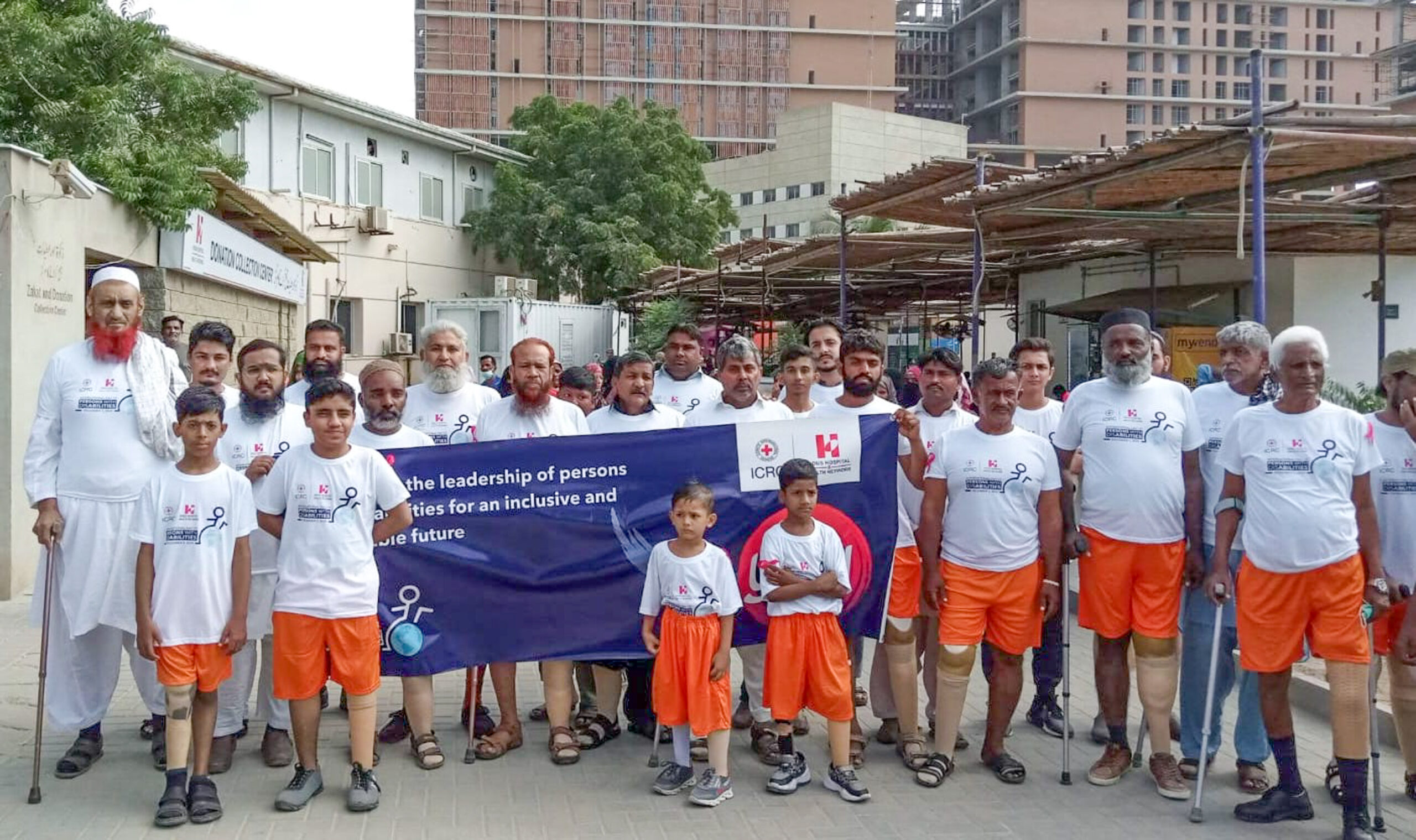Badin: Indus Health Network (IHN) marked the International Day of Persons with Disabilities with a vibrant event focused on promoting rights, accessibility, and inclusion for individuals with disabilities. The event, held in Badin, witnessed participation from a diverse group, including IHN staff, government officials, healthcare professionals, and community members.
This year’s theme, “Amplifying the Leadership of Persons with Disabilities for an Inclusive and Sustainable Future,” emphasized empowering individuals with disabilities to take on leadership roles and contribute actively to society.
The event featured prominent speakers who stressed the importance of accessibility and equal opportunities. They highlighted the critical role of recognizing the potential of persons with disabilities and fostering an inclusive environment for them to thrive.
Among the distinguished guests were Dr. Amin Chinoy, Executive Director and Director of Physical Rehabilitation at IHN; Dr. Ali Jillani, Head of Orthopaedics and Consultant Orthopaedic Surgeon; Dr. Ayesha Saeed, Medical Superintendent of Civil Hospital; and Muhammad Umair Sharif, Deputy Manager of Physical Rehabilitation at IHN. Bilal Ahmed, Supervisor of Badin Rehabilitation, played a key role in organizing the event.
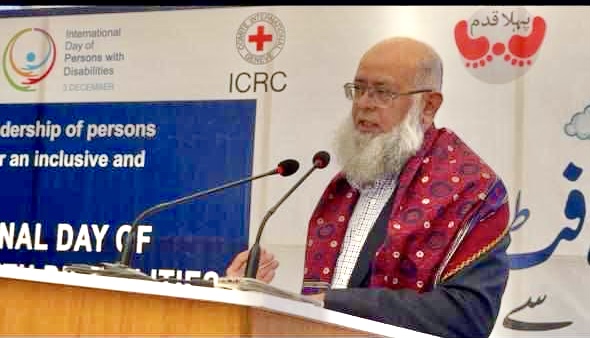
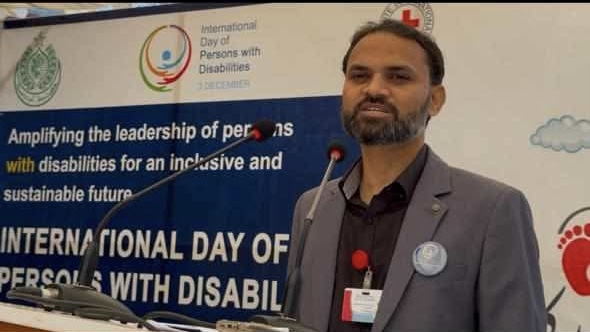
The Sindh government’s commitment to supporting persons with disabilities and strengthening collaborations with organizations like IHN was also emphasized during the program.
The event began with a walk, featuring patients, rehabilitation staff, and invited guests, symbolizing unity and resilience. Patients shared inspiring success stories, showcasing their journeys of overcoming challenges and achieving independence through rehabilitation services provided by IHN.
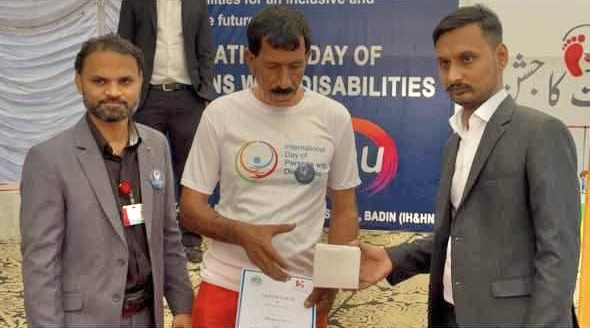
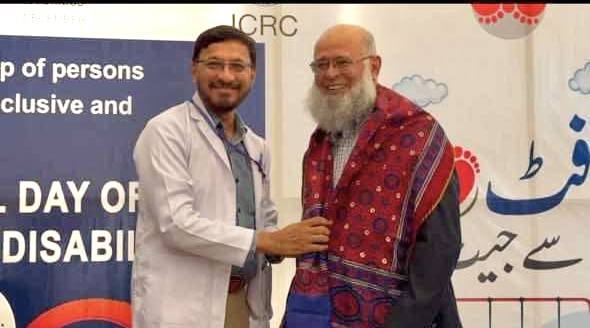
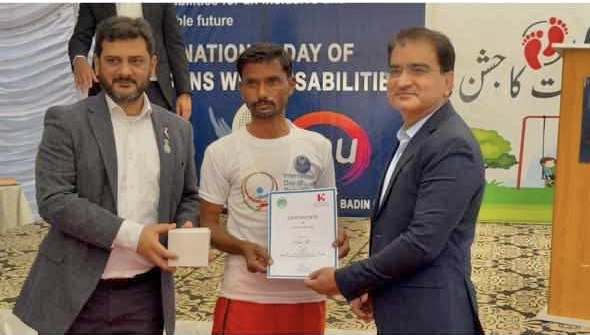
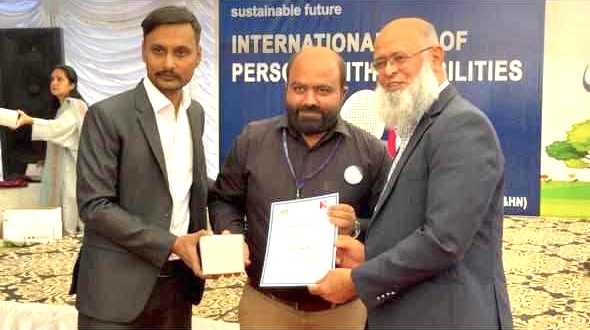
In recognition of their contributions, all honorable guests were presented with traditional Sindhi Ajrak as souvenirs. Patients and staff members were awarded gifts and certificates for their dedication and efforts.
This celebration served as a powerful reminder of the need for collective action to create an inclusive society where persons with disabilities are empowered to lead and contribute meaningfully.
Courtesy: Mohammed Umair Sharif

